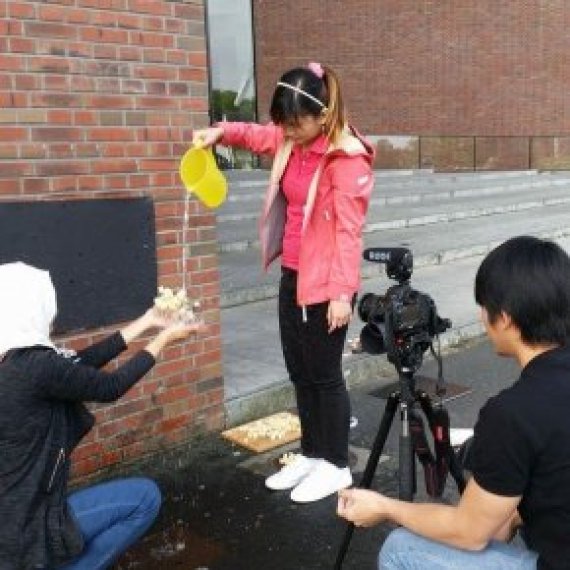For this European competition students develop a new food product and everything that has to do with packaging, marketing and sales. The six Wageningen students worked for months, four to five hours a day, to produce their drink Temphtation. This included a series of sensorial test, literature studies, packaging design, the development of a marketing strategy and a financial plan.
The Wageningen team easily won the Dutch preliminary round. They received two thirds of the votes from captains of industry gathered at a AgriFood Summit in June. That time, the five Indonesian and one German student received an award from Henk Kamp, Minister of Economic Affairs. ‘We didn’t know who he was’, team captain Marie Luise Puhlmann admits. ‘We knew he was an important man, because all people at that summit were important, but only when he was announced as a speaker – after he had handed us the award – we realised that he was a Minister.’
Temphtation has been designed for the Asian market, as becomes apparent from the commercial made by the students.
We’ll be back after the commercial break…
Tempeh, made of fermented soy beans, is used a lot in the Asian cuisine. ‘The fermentation process increases the digestibility and makes the nutrients more easily available’, says Marie-Luise, selling greatness of the product. ‘And tempeh is also more sustainable than soy, because the whole bean is used, including the peel.’ She can’t just make those claims. They have to be backed with scientific prove. The Indonesian students found lots of research papers from Indonesia.
Temphtation, an alternative to dairy drinks, was developed by the students in a lab of the university. They made a drink in four different flavours. For the sterilisation process, to increase the shelf life, equipment of dairy company FrieslandCampina was used. ‘That equipment is not available at the university’, Marie-Luise explains. More companies provided assistance to the students. Vida supplied them with free tempeh and International Flavours and Fragrances Inc. gave them the flavouring substances.
For years Wageningen University has been doing well at the EcoTrophelia. In 2013 a Wageningen team won the second prize with a quinoa-based chocolate drink and in 2012 Wageningen University even became first in this European competition. that team had developed a meat replacement product of fermented lupine and oats. ‘That team was entirely made up off Indonesian students. They made tempeh of European plant products, instead of with imported soy’, tells Marie-Luise. This Indonesian success at the EcoTrophelia also explains why so many Indonesian students also take part this year. ‘Indonesian students in Wageningen are mentors to their younger fellow-Indonesians. One of the mentors this year won the EcoTrophelia in 2012.’

